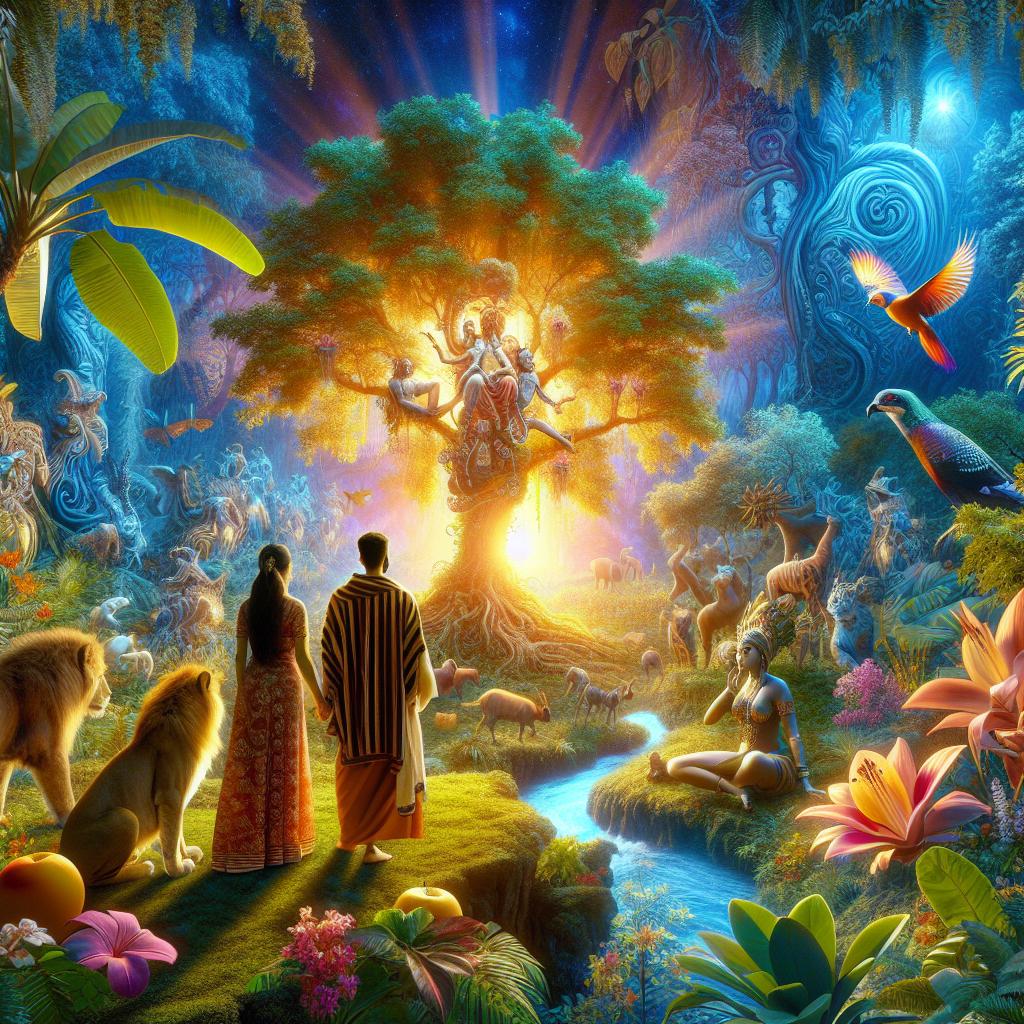
Genesis: Unveiling the Historical Truths Behind Creation
Published: 30 July 2024
Genesis: A Historical Account
Genesis is often debated among scholars and theologians, with some questioning its historical accuracy and claiming it to be poetry or allegory. However, as supporters of biblical creation, we affirm that Genesis is a book about history, recounting real events that took place in the past. To understand the nature of Genesis, we need to compare it with other parts of Scripture and examine how it is treated by other biblical writers.
Other Biblical Writers Treat Genesis as History
Hebrew scholar Dr. Steven Boyd has conducted a detailed analysis of the verb patterns used in Hebrew poetry and historical books. He found that different types of verbs are frequent in Hebrew poetry but not in historical books. Applying this analysis to Genesis 1:1–2:3, he concluded that the probability of it being narrative (not poetry) is 0.99997.
Additionally, numerous articles have demonstrated that the rest of the Bible treats Genesis as real history. The writers of both the Old and New Testaments refer to the people, events, time frames, and order of events in Genesis as factual accounts rather than literary or theological devices. The historical reality of Genesis is foundational to crucial teachings about faith and morality. Moreover, the authors of the New Testament assume that their readers received detailed instruction in Genesis.
The Characteristics of Biblical History
To understand how Genesis should appear if it were a historical account, we can compare it to other undisputed historical books like Exodus, Joshua, and Judges. Hebrew grammar experts have identified a distinct verb pattern in Old Testament historical narratives. These narratives typically start with a perfect verb and continue with consecutive verbs called "waw consecutives" or "wayyiqtols." This verb pattern is prevalent in the historical books.
Applying this understanding to Genesis 1, we find that the first verb, "bārā’" (create), is perfect, while the subsequent verbs that advance the narrative are wayyiqtols (e.g., "wāyyō’mer" - "and... said," "wāyehi" - "and there was," "wāyyāre" - "and... saw"). This pattern aligns with what we would expect from a historical narrative.
Furthermore, Genesis 1–11 seamlessly transitions into Genesis 12–50 in terms of style and grammar, indicating a consistent historical account. Therefore, any doubts regarding the historicity of Genesis stem from considerations outside the text, such as long-age uniformitarian geology and evolutionary biology.
Poetry in Scripture
To differentiate between historical narratives like Genesis and poetic books like Psalms, we must understand the characteristics of Hebrew poetry. Unlike rhyme or meter, parallelism is the defining characteristic of Hebrew poetry. Parallelism refers to statements in consecutive lines that are related in some way.
For example, synonymous parallelism involves stating one thing and then restating it using different words. Antithetical parallelism presents the opposite of the first statement, while synthetic or constructive parallelism extends the first statement with the next one.
In contrast, Genesis lacks these types of parallelisms throughout its text, except when quoting people. If Genesis were truly poetic, it would utilize parallelisms consistently. Nevertheless, there is a poetic celebration of God's creative work in Psalm 104, which serves as an example of poetic accounts of creation.
Structural Similarities with Other Passages
A passage similar in structure to Genesis 1 is Numbers 7. Both passages contain numbered sequences of days using the Hebrew word for day, "yôm." In Numbers 7, representatives from each tribe bring offerings on consecutive numbered days.
Numbers 7 not only numbers each day but also opens and closes with "in the day that," referring collectively to the entire sequence. This refutes the claim that "in the day that" in Genesis 2:4 implies that the Genesis 1 days are not normal-length. This phrase is a Hebrew idiom for "when." The grammatical basis for denying the historical nature of the Genesis 1 days is unfounded, as both Genesis and Numbers are straightforward historical accounts.
Numbered Days as Ordinary Length Days
The numeric form of the days in Genesis aligns with the Hebrew form of ordinal numbers found in the numbered days of the Numbers passage. However, there is a crucial distinction on Day 1 of Creation Week. Genesis 1:5 does not use an ordinal number but instead uses a cardinal number, indicating "one day." This choice reflects the fact that this was the first time anyone spoke the word "day" with a numeric value, and it was the only day at that point.
God defines what a day is in Genesis 1:5, emphasizing the darkness (night) and light (daytime) cycle. The completion of creation occurred within six ordinary-length earth-rotation days. Basil, a fourth-century theologian, acknowledged this understanding by stating that a day is measured by a 24-hour cycle and represents the time it takes for the heavens to return to their starting point.
Conclusion
Genesis is indeed a historical account. The rest of Scripture treats it as such, and its style and verb patterns align with other undisputed historical books. While Genesis lacks the characteristics of Hebrew poetry, there are poetic accounts of creation in Psalms. Furthermore, structural similarities between Genesis and other passages demonstrate their shared historical nature.
Understanding the history presented in Genesis is crucial for developing a comprehensive understanding of faith and morality. By affirming its historical accuracy, we can appreciate the profound truths contained within these biblical accounts.
Why This Matters: Recognizing Genesis as history affirms the authority and accuracy of Scripture from its very first verse. It allows us to understand the foundational teachings of faith and morality presented in Genesis. By acknowledging the historical nature of Genesis, we can engage with these biblical accounts in a comprehensive manner.
Think About It: How does accepting Genesis as a historical account impact your understanding of God's creation? How does it influence your interpretation of other biblical teachings that are rooted in the events described in Genesis?
